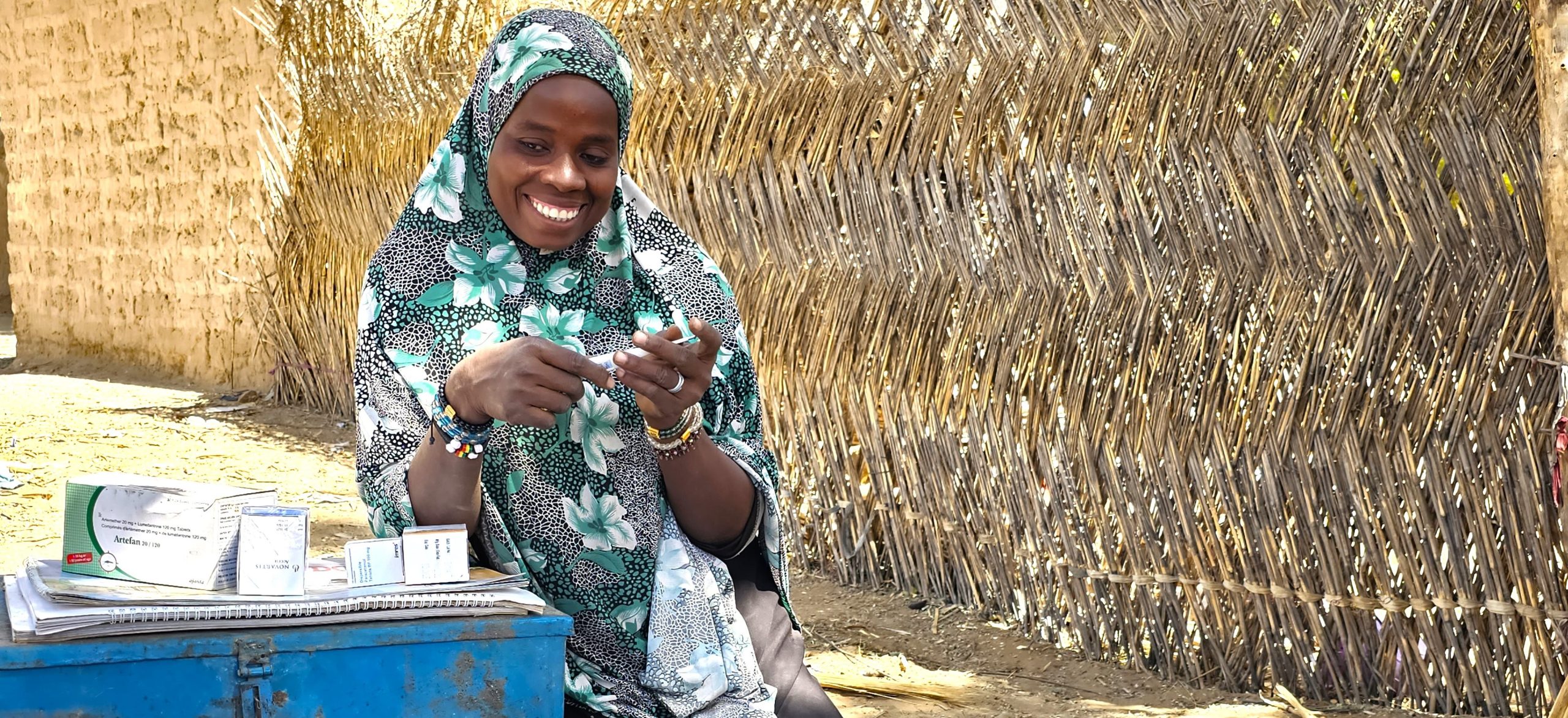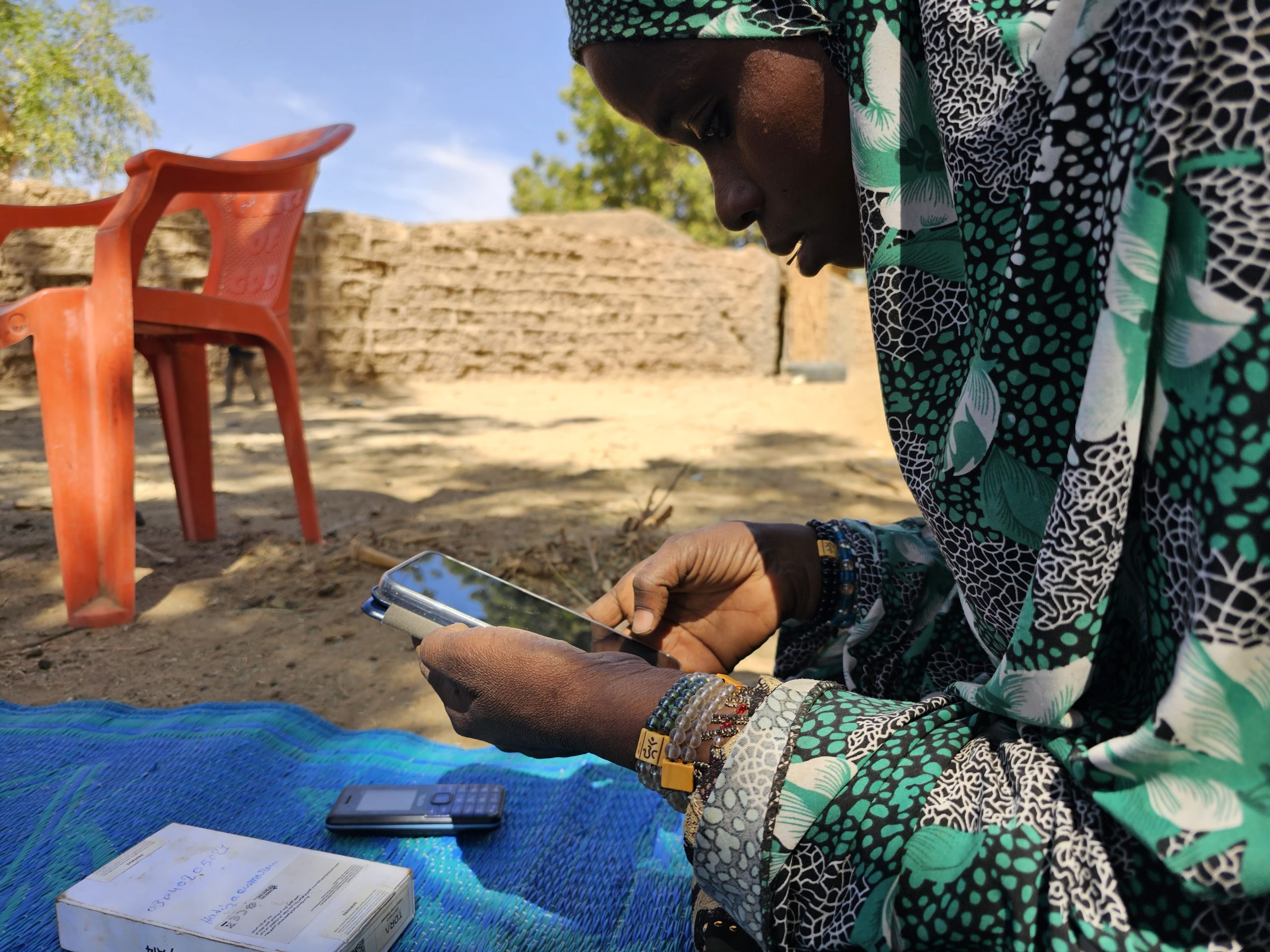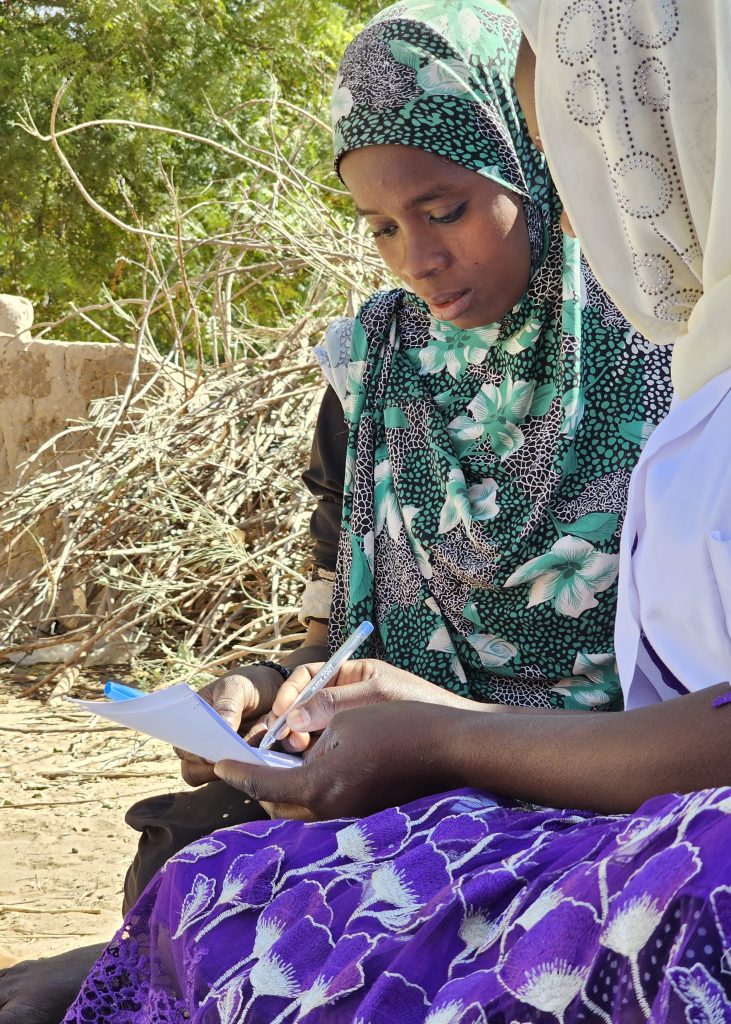Community Health Workers Bridge Health Care Gaps in Rural Niger Communities
Published on March 28, 2024

Text and photos by Hadjara Laouali Balla, Communications and Knowledge Management Advisor, MOMENTUM Integrated Health Resilience, Niger
Organizations such as the World Health Organization and UN High Commission for Refugees recommend that populations should live no more than 5 kilometers from a health facility. However, in Niger, 46 percent of the population still lives much farther from a health facility with qualified staff, according to national data (National Health Information System [SNIS] 2022). This calls for innovative strategies to ensure access to healthcare for small communities, and MOMENTUM Integrated Health Resilience has been working alongside local and national partners in Niger to help make that happen.
Since 2015, Hadiza Oumarou, 28, a married mother of three, has been a community health worker (known locally in French as a relais communautaire, or community relay) in the village of Achalahia. Achalahia is 6 kilometers from the Nassaraoua Integrated Health Center in the Tibiri District in the region of Dosso, a rural scrubland of red sand hillocks and mud brick dwellings.
Hadiza’s front-line community work involves identifying health danger signs in children under 5 and referring them to a health center. She also treats children between 2 and 59 months for illnesses such as diarrhea, pneumonia, colds, and simple malaria, and facilitates community awareness raising sessions on hygiene, nutrition, voluntary family planning, and more.
MOMENTUM has supported the Niger Directorate of Community Health with a game changer: the implementation of an mHealth strategy (mHealth, or mobile health, is a strategy that uses mobile technologies as tools for providing healthcare). The strategy leverages smartphones and a digital community health data system that helps improve the quality of services offered by community health workers, ensures the availability of reliable and complete patient data, and supports decision-making for both delivering medicines and business planning.

In October 2023, MOMENTUM trained Hadiza and 73 other community health workers and an additional 24 health facility managers from Tibiri on mHealth, which applies a phone-based data analysis strategy to improve quality health service provision at the community level. MOMENTUM also supplied the equipment (such as smart phones, solar chargers, and mHealth accounts) needed to carry out the strategy.
“Using a smartphone has made my work a lot easier… now I enter data directly on the phone, which helps me determine the type of illness and then the treatment to give the patient. Before, I had to fill in several forms and think about the type of medication to give the patient, but now the phone does all the work for me. The phone also tells when to refer a patient to a health center,” says Hadiza.
Thanks to the mHealth application and the digitization of medical data, health workers now automatically receive patient diagnoses based on the symptoms entered in the system. They share the information directly with the health center managers, and in case of emergency or serious illness, the application instructs them to refer the case to the nearest health center staffed by a doctor or nurse. Health workers may also place orders for medicines with health facilities.

Community health workers receive regular follow-ups from supported health facilities, district and regional health teams, and MOMENTUM staff to check on the condition of the telephones, verify their working materials, and provide support as needed. Community health workers also submit monthly activity reports to their local health centers. Community health worker participation in community health management is key to reducing the health coverage gap in Niger.
“My dream is to see my village free of diseases. We have already started seeing change in our community…for example, people bring their children to me more often. I’ve seen an improvement in attendance to health centers, and the number of cases for diarrhea has fallen compared to last year,” says Hadiza.
MOMENTUM also supports community health management at higher levels, including technical assistance to the Ministry of Health in the regions of Dosso and Tahoua. This will help to increase equitable access to, and use of, essential and community health services because it promotes approaches adapted to the realities and needs of the communities. Thes can include a lack of transportation or storage facilities, droughts and floods, and other challenges. These efforts contribute to strengthening health resilience in communities, which is core to MOMENTUM’s mission.
And dedicated health workers such as Hadiza are key to making it all work. “As long as there are medicines available, I will continue to do my job as a community health worker,” Hadiza says.

